Alaska talks revealed the changing balance of power
By Isaac Wang
While much of the analysis surrounding the Alaska talks between the United States and China will focus on the content of what was said, what will stick in audiences’ minds will be the changing dynamics of Great Power Competition.
For some quick context, there’s currently still disagreement within the strategic communities of each nation regarding the likelihood of China’s rise. Chinese national documents, in evaluating their strategic environment, indicate that China sees the world as becoming more multi-polar and views its own rise in all elements of national power as a natural consequence of its growth. China also views its own rise to great power status as both inevitable and a return to historic norms. The strategic community within the United States, on the other hand, still views China’s rise to become an equally powerful or more powerful nation as something that is largely uncertain. More importantly, these people believe the range of possible futures can be shaped by an adequate and prompt response from the United States.
The United States, from its perspective, wishes to maintain the rules-based liberal international order that was built on Bretton Woods institutions founded immediately after World War II. To peel back the jargon and put it in plain English, it wishes to use its unique power to bend the world towards Western values of free markets, democracy, and individual freedom. What may seem obvious to all people in the non-Western world but is largely incomprehensible to most in the West is that these economic, political, and social values are not universally shared and should not be pushed onto other people.
More importantly, the inability to push back against the West in the last 300-400 years of human history was mostly due to an imbalance in military and economic power between the West and the rest of the world.
China now has both the military and economic power to push back. The West has been unsuccessful in the proselytization, colonization, and democratization of China. The perception of the balance of power has shifted after the events of 2020. This is what makes the current dynamics so interesting for people around the world.
China believes it is within its rights to pursue peaceful development in all elements of national power. China does not like having the United States shape its range of possible futures, and views the United States as largely applying an approach of hybrid warfare to contain China and prevent it from achieving its development goals. Hybrid warfare in this context refers to the use of both conventional and irregular warfare (ex. fake news, diplomacy, law-fare, and election interference) to achieve political ends. China does not believe any of the listed concerns of the United States regarding Xinjiang, Hong Kong, or Taiwan actually affect US vital national interests in any substantive way; furthermore, China does not believe the US has the right to intervene in what China views are its domestic affairs. It views the US approach to these issues as ancillary to the larger hybrid war to contain China.
This view is not without merit. The Director of the FBI in 2018 stated, “One of the things we’re trying to do is view the China threat as not just a whole-of-government threat, but a whole-of-society threat on their end… and I think it’s going to take a whole-of-society response by us.” This whole-of-society response, for the Trump Administration, meant escalating every disagreement with China and ensuring full pressure from multiple directions. This particularly aggressive approach was done to both contain China and to maximize re-election prospects. The first goal was evident in the now-declassified Indo-Pacific Strategic Framework, and the second goal was evident in the National Republican Senatorial Committee’s strategy memo on how campaigns should talk about China in the 2020 election cycle. Needless to say, China found this entire outlook and approach extremely offensive and harmful to bilateral relations.
For non-Western audiences around the world, it may have seemed puzzling that the US, given its history of violence against Muslims, suddenly cared about Chinese Muslims in Xinjiang. It is of no surprise whatsoever that the majority of Islamic countries support China on its Xinjiang approach as they see the Western support for Uyghurs as part of its larger foreign policy goals of destabilizing Xinjiang and breaking it away from China.
The perceived insincerity of US concerns was evident during Chinese statements at the top of their meeting. To the Chinese, it seemed brazenly hypocritical and inappropriate for a nation with a history of racial problems domestically and a history of violent regime change and foreign intervention worldwide to dictate how China should manage its internal affairs. The Chinese side expressed its displeasure in a forcefully blunt and unexpected fashion. In the lead up to the talks, China had remained fairly restrained in its rhetoric as it had indicated that it hoped the two sides could constructively move forward; conversely, the US had levied sanctions of Chinese officials, maintained Trump’s economic policies on China, and declared Huawei a national security threat.
China, like many other nations, believe the burden is on the United States to repair four years of damage from the Trump Administration that broke all diplomatic norms and protocols. Rather than coming with an attitude of humility, which is something Biden’s Indo-Pacific Coordinator Kurt Campbell frequently speaks of regarding his China approach, the Biden team decided to operate as if the last four years didn’t happen. As many media outlets have since reported, the Biden team expected to speak from a position of strength, but was surprised at the level of firepower the Chinese brought when it came to criticism of the US.
The Alaska talk will forever be remembered for Foreign Minister Yang following statements:
“Well, isn’t this the intention of United States, judging from what – or the way that you have made your opening remarks, that it wants to speak to China in a condescending way from a position of strength?
So was this carefully all planned and was it carefully orchestrated with all the preparations in place? Is that the way that you had hoped to conduct this dialogue?
Well, I think we thought too well of the United States. We thought that the U.S. side will follow the necessary diplomatic protocols. So for China it was necessary that we made our position clear.
So let me say here that, in front of the Chinese side, the United States does not have the qualification to say that it wants to speak to China from a position of strength. The US side was not even qualified to say such things even 20 years or 30 years back, because this is not the way to deal with the Chinese people.”
(The views expressed in this article do not necessarily reflect those of Press TV.)
OIC welcomes Oman-mediated Geneva talks between Iran, US; warns against use of force
VIDEO | Campaign to boycott Israeli ‘apartheid dates’ in UK intensifies during Ramadan
VIDEO | Pakistan launches Operation Ghazab lil-Haq after Afghan border firing
VIDEO | Pakistan condemns Israel’s expansionist agenda in Palestine at OIC
Rubio warns US envoys against undermining Trump’s pressure campaign targeting Iran: Report
Iran, Qatar stress continuation of diplomacy towards preserving regional peace, stability
Majority of Americans support Palestinian state as Israel backing declines sharply: Poll
New Israeli strikes kill more Palestinians across Gaza in 'serious violation' of ceasefire



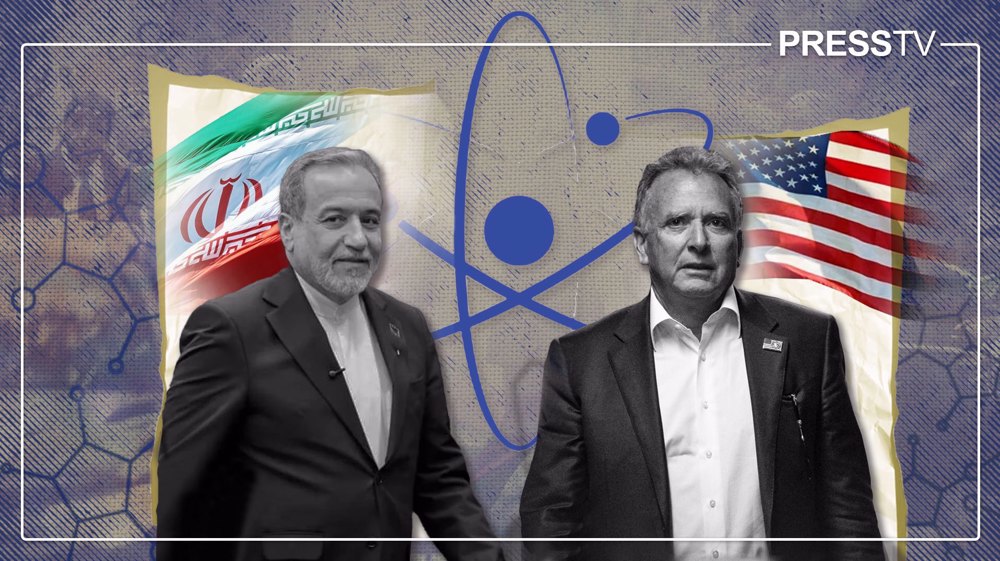
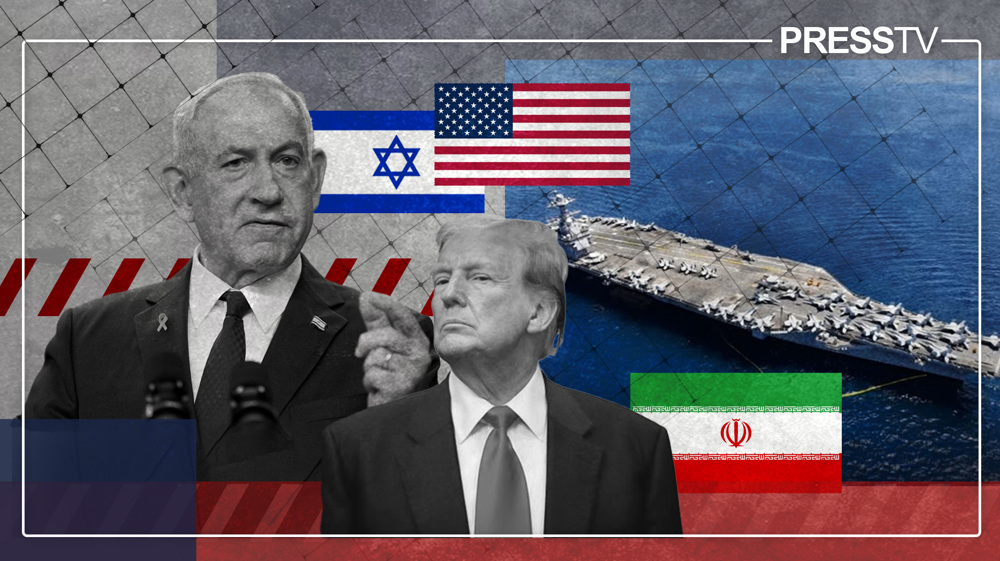





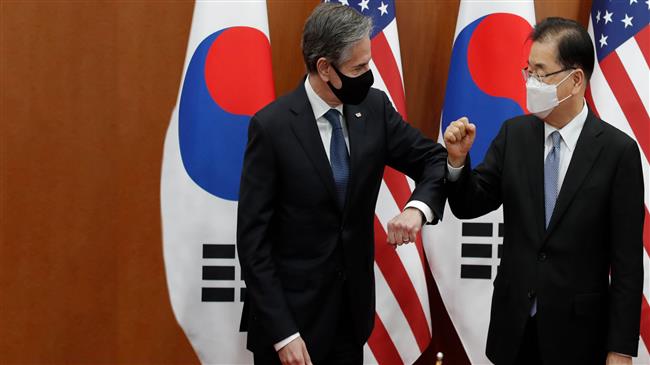

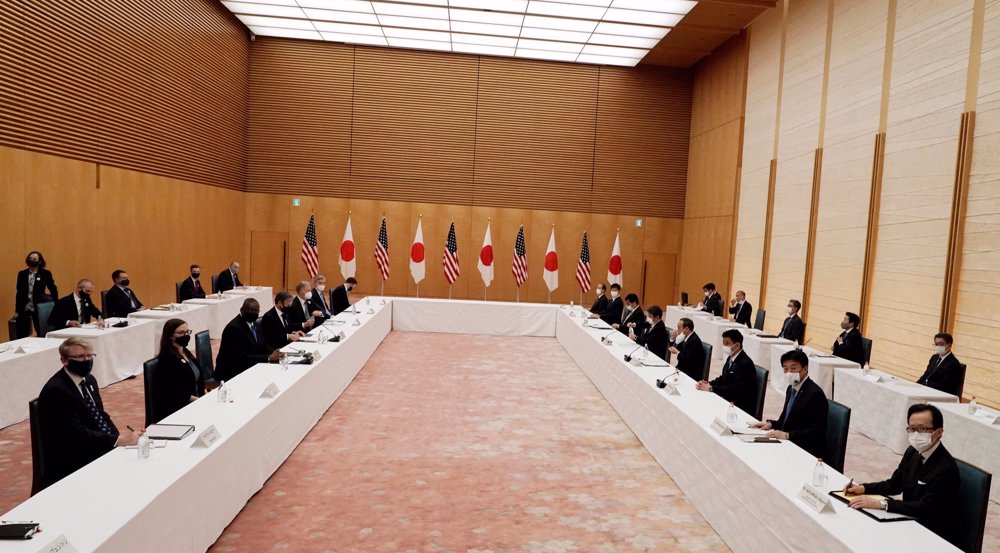

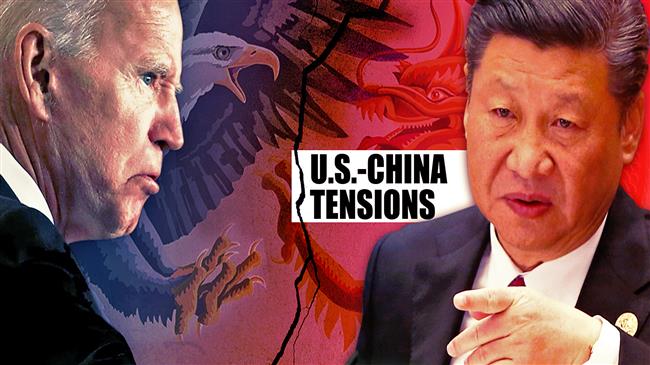

 This makes it easy to access the Press TV website
This makes it easy to access the Press TV website